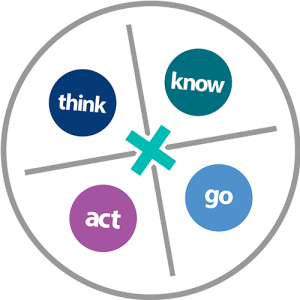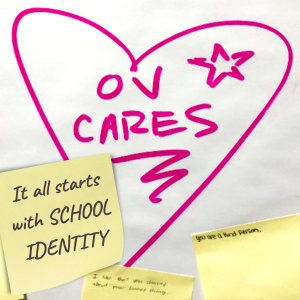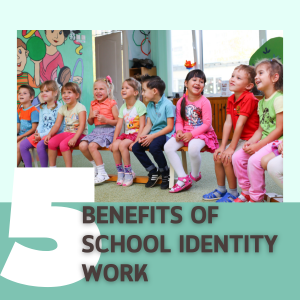This paper highlights the conceptual soundness of explicitly acknowledging and developing metacognitive factors in the learning process. It also demonstrates the feasibility of measuring these skills and of the ways in which schools, districts, and states can incorporate them into practice, first on a limited, experimental basis, with the commitment to scaling them up when they demonstrate success. This report was prepared for the Raikes Foundation in September 2014.
Excerpt From Learning Strategies as Metacognitive Factors: A Critical Review
Every day students face multiple complex tasks—things that require more than an automatic response. They could include developing a strategy for a new project, assignment, or task; being asked to lead a team of peers; taking the initiative to gather information for a research paper; managing personal time to juggle multiple priorities and complete a complex task during several days or weeks; or seeking help when unable to solve a problem or complete an assignment using regular techniques and strategies. Students’ abilities to complete and learn from each learning task successfully depend on more than their content knowledge. Success depends on how well they can identify, select, evaluate, adjust, and implement appropriate strategies for applying what they know in tackling the task at hand. Their success is influenced by their perception of whether the task is meaningful, if they believe they can succeed, how high they aspire to achieve, what level of achievement they need to pursue their life goals, and how well they can regulate their mindset to persist.
Learning strategies are among a group of factors that traditionally have been called noncognitive skills, in contrast to the more common cognitive skills, which refer largely to content-knowledge acquisition and retention. This label is a somewhat ironic and not entirely appropriate, given that these learning skills require more ongoing cognitive processing than many content-acquisition tasks.
Although the labels to describe these learning skill constellations vary from terms such as “noncongitive skills” (Heckman & Rubinstein, 2001) and “noncognitive factors” (Farrington et al., 2012), this paper adopts the concept of metacognitive learning skills to describe the thinking that students use to manage and navigate the learning process. Conley (2013) presents a rationale for shifting from the term noncognitive to the notion of metacognition to describe student-learning functions.
Learners approach complex tasks with a range of techniques they derive largely from experience, ingenuity, and—for a lucky minority—formal instruction in learning skills and strategies. They use metacognition to monitor the relative effectiveness and success of any specific technique they use and then self-regulate to redirect their strategy as needed. This ability to be self-aware and reflective is at the heart of metacognition and the self-regulatory processes that allow learners to become progressively more effective at learning, particularly in formal academic settings. When considering the complex tasks students face daily, it becomes clear that preparing them for success in school, work, and life requires intentional efforts to encourage the development of a variety of learning strategies and skills that improve their effectiveness in acquiring content knowledge and that facilitate their application of that knowledge in complex and nonroutine ways.
Perhaps it’s time to think of noncognitive dimensions of learning as forms of thinking, rather than as a process that does not involve cognition. Are we not observing a higher form of thinking when we see students persist with difficult tasks, such as overcoming frustration; setting and achieving goals; seeking help; working with others; and developing, managing, and perceiving their sense of self-efficacy?Are these qualities not at least as important as knowing how well students recall information about the year in which the Civil War began, or how to factor a polynomial? Might what we observe when we look for noncognitive factors be a more complex form of cognition—a result of executive functioning by the brain as it monitors and adjusts to circumstances to accomplish specificaims and objectives? In other words, might these behaviors be manifestations not of feelings, but of metacognition—the mind’s ability to reflection how effectively it is handling the learning process as it is doing so?
2014_Learning_Strategies_As_Metacognitive_Factors.pdf (3181 downloads )



